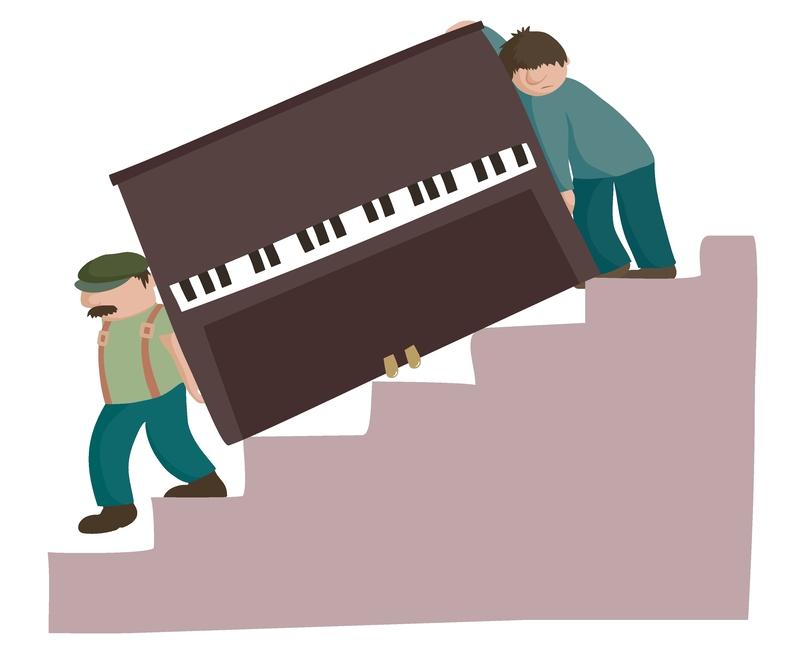Leaving Home: Essentials for Moving Out
Posted on 01/05/2025
Moving out of your family home for the first time is a monumental step in every person's life. Whether you're moving to attend college, starting a new job, or simply seeking independence, the transition can be both thrilling and challenging. Proper preparation can make the process smoother and set the foundation for a successful independent living experience. In this comprehensive guide, we'll explore the essentials for moving out and how to navigate this life-changing milestone.
Financial Preparation
One of the most critical aspects of moving out is ensuring that you are financially prepared. Without a solid financial plan, you may find yourself overwhelmed by unexpected expenses and monetary stress.
Budgeting
Before you move out, it's crucial to create a budget that outlines your income and expenses. Your budget should include:
- Rent or mortgage payments
- Utilities (electricity, water, gas, internet)
- Groceries
- Transportation costs (public transport, car payments, insurance)
- Insurance (health, renters, auto)
- Leisure and entertainment
- Emergency funds
By clearly understanding your income and expenses, you can manage your finances effectively and avoid debt.
Savings
Having a savings cushion is vital when moving out. Unexpected costs, such as medical bills, car repairs, or urgent home repairs, can arise at any time. Aim to save at least three to six months' worth of living expenses before you move out.
Credit Score
Your credit score can significantly impact your ability to rent an apartment, secure loans, or even get a job. Ensure your credit score is in good shape by:
- Paying bills on time
- Reducing outstanding debts
- Checking your credit report for errors and disputing inaccuracies

Finding the Right Place
Choosing the right place to live is another critical aspect of moving out. Your living environment can greatly affect your quality of life, so take the time to consider various factors before making a decision.
Location
When selecting a place to live, consider its location in relation to your work or school, public transportation options, proximity to grocery stores, and safety. A convenient and safe location can save you time and reduce daily stress.
Type of Housing
There are several housing options to choose from, including:
- Renting an apartment
- Sharing a house with roommates
- Living in a dormitory (for students)
- Purchasing a home (if financially viable)
Each option has its pros and cons, so evaluate your lifestyle, budget, and long-term goals before making a decision.
Lease Agreements
Understanding your lease agreement is crucial to avoid any future complications. Pay attention to the following terms:
- Lease duration
- Renewal terms
- Security deposit requirements
- Pet policies
- Maintenance responsibilities
- Termination conditions
Make sure you understand all the terms and ask questions if anything is unclear. Never sign a lease agreement without thoroughly reviewing it.
Essential Supplies
Moving out requires gathering various essential supplies to ensure your new home is functional and comfortable. Here's a list of items you'll need:
Furniture
Your new place will need some basic furniture. Consider acquiring:
- Bed and mattress
- Sofa
- Dining table and chairs
- Desk and chair (if you need a workspace)
- Storage solutions (closets, dressers, shelves)
Kitchen Supplies
A functional kitchen is vital for preparing meals and saving money on dining out. Basic kitchen supplies include:
- Cookware (pots, pans, baking sheets)
- Utensils (knives, spatulas, ladles)
- Tableware (plates, bowls, glasses, cups)
- Small appliances (toaster, microwave, blender)
- Cleaning supplies (sponges, dish soap, trash bags)
Laundry and Cleaning Supplies
Keeping your new place clean and hygienic is essential for a comfortable living environment. Ensure you have:
- Laundry detergent
- Cleaning sprays and solutions
- Vacuum cleaner
- Broom and dustpan
- Mop and bucket
Personal Items
Don't forget personal essentials such as:
- Toiletries (soap, shampoo, toothpaste, toilet paper)
- Bedding (sheets, blankets, pillows)
- Towels (bath towels, hand towels, washcloths)
- First aid kit (bandages, antiseptic, pain relievers)
Developing Essential Life Skills
Independent living requires a set of essential life skills. Mastering these skills will help you navigate the challenges of living on your own and ensure a successful transition.
Cooking
Being able to cook basic meals is an invaluable skill that can save you money and improve your health. Start with simple recipes and gradually expand your culinary repertoire. Consider investing in a cookbook or using online resources to find easy-to-follow recipes.
Cleaning and Maintenance
Keeping your living space clean and well-maintained is crucial for a healthy and comfortable environment. Create a cleaning schedule to ensure that chores are done regularly. Learn basic maintenance skills, such as fixing a leaky faucet, unclogging a drain, and changing light bulbs.
Time Management
Balancing work, studies, and personal life can be challenging. Develop effective time management skills by creating a daily schedule, setting priorities, and avoiding procrastination. Efficiently managing your time will help you stay organized and reduce stress.
Laundry
Understanding how to do laundry is essential for keeping your clothes clean and in good condition. Learn how to separate clothes by color, choose the right detergent, and select the appropriate washing machine settings. Don't forget to familiarize yourself with drying techniques and ironing, if necessary.
Budgeting and Financial Management
Managing your finances goes beyond budgeting. Learn to pay bills on time, understand your tax responsibilities, and save for the future. Consider using financial management apps to track expenses and savings goals.

Building a Support Network
Moving out and living independently can be an isolating experience, especially if you're moving to a new city or country. Building a support network is crucial for emotional well-being and practical support.
Stay Connected with Family and Friends
Maintaining relationships with family and friends can provide emotional support and a sense of belonging. Schedule regular calls or video chats and make an effort to visit each other whenever possible.
Meet New People
Building new friendships is essential for creating a support system in your new environment. Engage in activities that interest you, such as joining clubs, attending community events, or taking classes.
Seek Professional Help if Needed
If you're struggling with the transition to independent living, don't hesitate to seek professional help. Counselors, therapists, and financial advisors can provide valuable guidance and support.
Conclusion
Leaving home and moving out on your own is an exciting and transformative experience. By ensuring financial preparedness, finding the right place to live, gathering essential supplies, developing crucial life skills, and building a support network, you can navigate this transition smoothly and successfully. Embrace the challenges and opportunities that come with independent living, and take pride in the growth and self-reliance you'll achieve along the way.
Latest Posts
How to Safely Transport Plants
Steps for Professional Piano Moving








